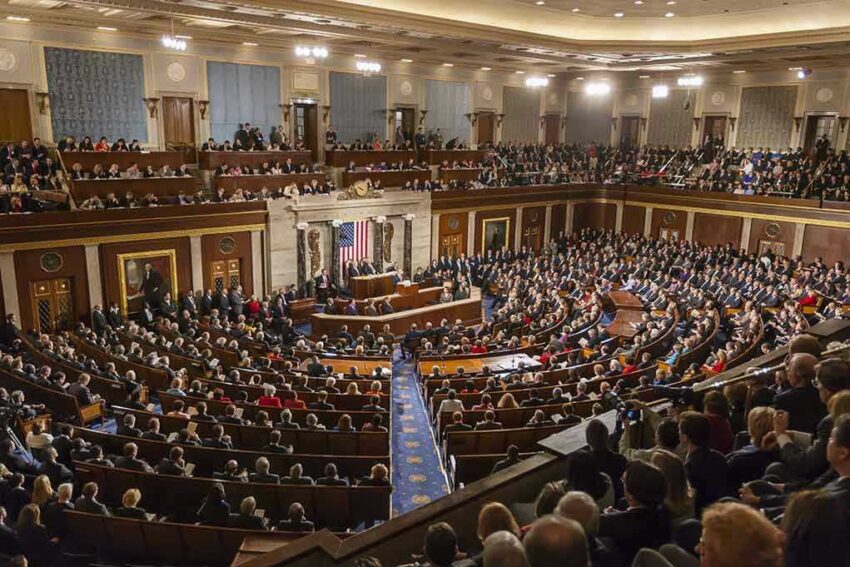President Trump’s historic use of a pocket rescission to strike down $5 billion in foreign aid has ignited a fierce constitutional battle over congressional power, with supporters hailing it as a long-overdue stand against “woke and wasteful” spending threatening American values.
Story Highlights
- Trump deploys pocket rescission for the first time in nearly 50 years to cancel $4.9 billion in foreign aid.
- The move targets funds labeled as “woke, weaponized, and wasteful,” sparking strong reactions from both supporters and critics.
- Congressional leaders and the Government Accountability Office challenge the legality, citing threats to constitutional checks and balances.
- Immediate reductions in USAID and State Department programs disrupt U.S. development efforts and intensify the executive-legislative standoff.
Trump’s Pocket Rescission: A Rare Executive Tool Unleashed
In August 2025, President Trump commanded national headlines by directing the Office of Management and Budget to cancel nearly $5 billion in foreign aid, primarily striking at funds previously allocated to the U.S. Agency for International Development and the State Department. This maneuver, known as a pocket rescission, has not been used in nearly half a century. The administration framed this action as a direct assault on “woke, weaponized, and wasteful” spending, marking a sharp pivot from the globalist priorities of previous years and aligning with Trump’s “America First” fiscal agenda.
By leveraging this rarely invoked authority, the White House sought to dismantle a legacy of international spending that it argues undermines U.S. sovereignty, drains taxpayer resources, and advances leftist agendas abroad. The pocket rescission tool, established under the Impoundment Control Act of 1974, allows the president to propose the cancellation of funds—yet only with congressional approval. Trump’s move, however, bypassed typical negotiations, raising alarms about the balance of power between the executive and legislative branches.
Constitutional Clash: Congress Pushes Back
Capitol Hill erupted in response to the White House announcement. Congressional leaders, including both parties, asserted that the power of the purse belongs solely to the legislature under the U.S. Constitution. The Government Accountability Office immediately flagged the pocket rescission as illegal, warning that it undermines congressional authority and disrupts the established separation of powers. Critics, including House Speaker Mike Johnson, argued that such unilateral executive action threatens the foundational checks and balances that have guarded American liberty for generations.
The legal debate centers on whether the Impoundment Control Act permits a president to withhold funds absent congressional consent. While the administration claims its actions are justified by the need to eliminate wasteful and ideologically driven programs, opponents maintain that this sets a dangerous precedent for budgetary overreach—risking erosion of constitutional protections that limit executive power.
Impact on U.S. Aid, Global Influence, and Conservative Priorities
The immediate consequence of the pocket rescission is a sweeping reduction in U.S. foreign aid, with USAID operations curtailed and many programs either dismantled or shifted to the State Department. Humanitarian and development efforts—particularly those supporting climate change, diversity, equity, and LGBTQ initiatives—are among those most affected. The administration argues these cuts restore fiscal discipline and refocus government on core American interests, while critics warn of disruptions to international partnerships and diminished U.S. influence abroad.
For conservative Americans frustrated by years of unchecked spending and ideological drift, the move represents a decisive rejection of globalist priorities and a reaffirmation of national sovereignty. Yet, as legal battles loom and Congress weighs its response, the broader implications for American governance and constitutional order remain uncertain. This pivotal moment underscores the ongoing struggle to balance executive initiative with legislative oversight—a core principle at the heart of the republic.
President Trump Uses Rare Move In Attempt To Scrap BILLIONS In Foreign Aid https://t.co/XqiBErq6Z0 #100percFEDUP via @100percFEDUP
— SASSYCHICK (@KT07500539) August 29, 2025
As the dispute unfolds, both supporters and critics look to the courts and the public for resolution, aware that the outcome will shape not only U.S. foreign policy but the very boundaries of presidential power for years to come.
Sources:
Trump moves to cancel $5 billion in foreign aid using pocket rescission (Axios)
Historic pocket rescission package eliminates woke, weaponized, and wasteful spending (White House)
Click this link for the original source of this article.
Author: editor
This content is courtesy of, and owned and copyrighted by, https://republicannews.org and its author. This content is made available by use of the public RSS feed offered by the host site and is used for educational purposes only. If you are the author or represent the host site and would like this content removed now and in the future, please contact USSANews.com using the email address in the Contact page found in the website menu.





